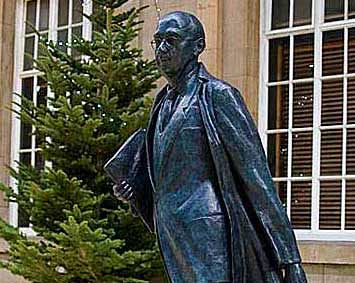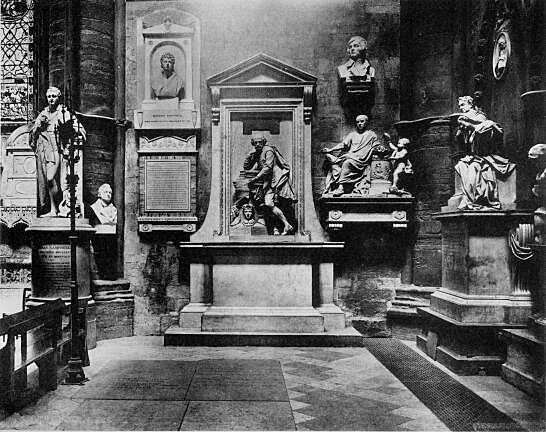We should be kind

Statue of Philip Larkin at Hull by Martin Jennings; photo by Paul Harrop
Philip Larkin (1922-1985)
The cult of celebrity infects the quest for perfection: how can we expect the best from a human endeavour if we require general perfection of those that strive?
You could play a parlour game and cite ceaseless examples of the highest art that would never been born had its creator been held to some prevailing standard of conduct (or thought).
Take Philip Larkin, the best English poet of his time. We find from certain biographies* and the gleeful poring over of unguarded correspondence that he had thoughts, impulses and views. [*We except the very accomplished and mature book, Philip Larkin, Life, Art and Love by James Booth]
We are supremely indifferent to discussions of men or women in the context of their art unless it informs consideration of their art. Discussion of behaviour, morals and unseemly views can be left to Twitter, Church, the courts, or the front bar (not necessarily in that order).
TRIGGER WARNING, YOUNG PENNY & WILL ROBINSON!!
Larkin’s case arises now because he has been given a memorial ledger stone in Poets’ Corner of Westminster Abbey. There have been quibbles because Larkin’s attitudes, from time to time, to women and people of colour, were not such as to commend them to posterity. But (death-obsessed) Larkin is dust now – we don’t commend him to posterity except the man he was when he wrote poetry.
Larkin extends the bridge from Lewis, Eliot, Auden and Pound. Here’s a random sample from some of his inspired stuff:
“I work all day, and get half-drunk at night.
Waking at four to soundless dark, I stare.
In time the curtain-edges will grow light.
Till then I see what’s really always there…” (Aubade)
“Only one ship is seeking us, a black-
Sailed unfamiliar, towing at her back
A huge and birdless silence. In her wake
No waters breed or break.” (Next, please)
“And these are the first signs:
Not knowing how, not hearing who, the power
Of choosing gone. Their looks show that they’re for it:
Ash hair, toad hand, prune face dried into lines –
How can they ignore it?” (The Old Fools)
“As they wend away
A voice is heard singing
Of Kitty, or Katy,
As if the name meant once
All love, all beauty.” (Dublinesque)
“They f*** you up, your mum and dad.
They may not mean to, but they do.
They fill you with the faults they had
And add some extra, just for you.” (This Be The Verse)
Groping back to bed after a piss
I part thick curtains, and am startled by
The rapid clouds, the moon’s cleanliness.” (Sad Steps)
“Two girls came in where I worked –
A bosomy English rose
And her friend in specs I could talk to.” (Wild Oats)
“In the hollows of afternoons
Young mothers assemble
At swing and sandpit
Setting free their children.” (Afternoons)
“The trees are coming into leaf
Like something almost being said;” (The Trees)
“I never remember holding a full drink.
My first look shows the level half-way down.
What next? Ration the rest, and try to think
Of higher things, until mine host comes round?” (Party Politics)
So let’s not run a mower over Larkin, or Wagner, or Shakespeare, et al. Thoughts should not cause us to go for our guns, and violence in pursuit of an ideal is ‘galactically stupid’. As Larkin wrote, “We should be kind While there is still time.” And as Jefferson memorably said of the sowers of discord in his inaugural address: “…let them stand undisturbed as monuments of the safety with which error of opinion may be tolerated when reason is left free to combat it.”
Leave a comment...
While your email address is required to post a comment, it will NOT be published.




0 Comments